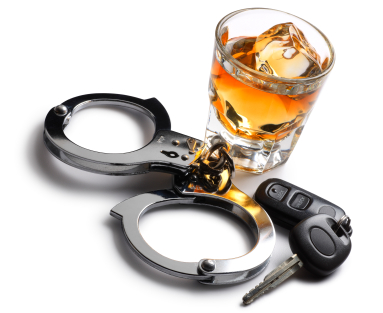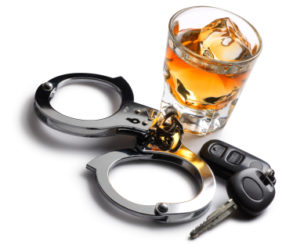Report writing is a detailed task for police officers, a task that some police officers perform better than others. It takes practice to become efficient and thorough with writing reports. If a police report is badly written, or incomplete, that could be very problematic for not only the prosecutor but also the offender. When there are issues with the writing of the police report, there could be issues elsewhere with the DUI Arrest, processing, or other phases of the police investigation. Contact a Georgia DUI Attorney immediately to obtain and review the police report, or if your police report is lacking or has incorrect information.
The police report is essentially a form that the police officer fills out with the required information regarding the parties involved and the details of the incident. There are also spaces for the police officer to write out descriptions of the event. Since there is not an exact format for what should be written in these description boxes, many officers will write a very short summary without enough details or even skip writing anything at all. The less information provided in the police report, the harder it will be for you at your trial.
On the flip side, reports with minimal information expose the officer to intense cross-examination on the lack of training or failure to follow procedures. This is one of the advantages of getting help from a Georgia DUI Attorney. Your attorney can review the police report (the officer’s version of what happened) and keep the officer locked in to that version of the story. Then, your Georgia DUI Attorney can watch for any errors, even under the officer’s version.Â
Also, if the police officer does not properly fill out the police report, then he may not properly complete other tasks as well. So, if your police report has any problems with it, there may be issues in other areas of the DUI investigation that you may not realize. It is always wise to consult with a Georgia DUI Attorney to discuss your police report, arrest, processing, etc. to determine the relevant facts in your case or if there are bigger issues involved in your case.
What to look for:
Police departments provide training regarding report writing and officers are taught the correct way to complete a police report. However, when in the field or thereafter, it is sometimes difficult to write a police report according to all the suggested guidelines. Police officers have to make mental notes and observations during their investigation and later recall all of the details to complete the report.
There is nothing wrong with a short police report, the main concern is that it is accurate. Because the prosecution will use the information for trial, when a police officer writes a thorough report, a trial can often be avoided. For this reason, it is important to consult with a Georgia DUI Lawyer to determine whether that is an option for you.
According to the National Highway Traffic Safety Administration, the following is a list of some of the things that a police officer will take note of for the police report:
- Initial observations: What about the subject’s actions/ vehicle caught the officer’s attention?
- Vehicle Stop: Were there any unusual reactions from the subject?
- Contact with Driver: Observation of the driver’s personal appearance, behavior, speech, etc.
- Driving or Actual Physical Control: Was the subject driving or in actual physical control of the vehicle? (In some cases, the subject’s driving behavior is not a basis for the contact; for example, a road block or equipment violation, such as an expired tag or break lights not working.)
- Exit from the Vehicle: Observation of the subject’s exit from the vehicle and any unusual behaviors or actions.
- Field Sobriety Tests: The officer should conduct the field sobriety tests and document the subject’s actions during the administration of the tests.
- Arrest: Why did the officer decide to arrest? The officer should document the arrest and all elements of the violation that warranted the arrest of the offender.
- Implied Consent: Did the officer state the implied consent notice at the appropriate time in the investigation? (Miranda rights are rarely given for a DUI arrest.)
- Disposition/ Location of the Vehicle and Keys: Where is the subject’s vehicle being held or towed? The officer should document where and by whom the vehicle is being transported.
- Disposition of Passenger and/or Property: Are there other passengers or property that need to be cared for?
- Transportation: Where did the officer transport the offender for evidential testing? The officer should document the offender’s behavior and statements made during the transfer.
- Evidential Test: Which tests were administered and by whom?
- Witness Statements: The officer should document the witnesses and any statements they made.
- Notification of Offender’s Attorney or the Other Party: The officer should document the phone call made by the subject to an attorney or other person. (A call to a lawyer is very rare. Usually, the offender calls someone about picking up their car.)
- Citation/ Complaint: The officer should document if they provided a traffic citation/ complaint at the appropriate time, if applicable.
- Incarceration or Release: The officer should document the time and place of incarceration or the contact information of the responsible party to whom the offender was released.
- Additional Chemical Test: Were any additional chemical tests administered? If so, the officer should document all observations and the time and place of testing.
You can see that this is a lot of information that the police officer is responsible for observing and documenting. Not all of these items will be applicable to your specific DUI case, but many will be relevant.
If you have any concerns that your police report is inadequate or missing information, then you may want to have a Georgia DUI Attorney review it to determine if there are any major issues. Perhaps the most significant benefit of consulting with a Georgia DUI Attorney is that the attorney can find out the police officer’s version of the DUI Arrest and hold him to it throughout the rest of the DUI investigation and trial.
At A. Bishop Law, our Georgia Criminal Defense Attorney welcomes questions on Criminal Defense laws, Traffic Laws and Georgia DUI laws. Please Call or Email us with any questions.
About the attorney:  Anne Bishop is a Georgia Lawyer with A. Bishop Law in Gainesville, Georgia and handles various DUI / DWI, Marijuana Arrests and other Georgia Criminal Defense matters.  The law office of A. Bishop Law can assist clients throughout Georgia including: Hall County (Gainesville, Oakwood, Flowery Branch), Jackson County  (Jefferson, Braselton) White County (Helen, Cleveland), Lumpkin County (Dahlonega), Dawson County (Dawsonville), Habersham County (Demorest, Cornelia), and all of Northeast Georgia.
This article and/or video should not be considered nor relied upon as legal advice since it is only intended for general overview and informational purposes. Please consult with an attorney on your specific situation in order to determine an appropriate legal course of action.





